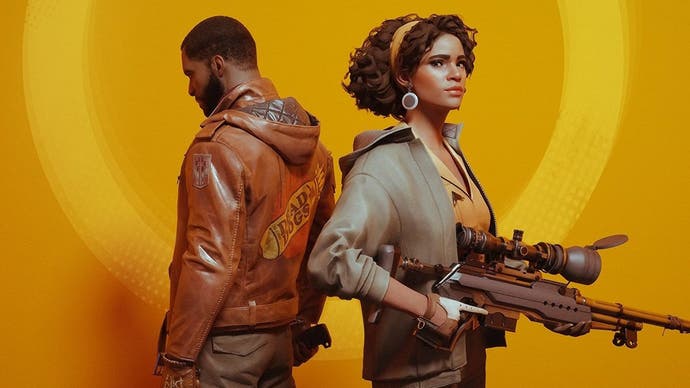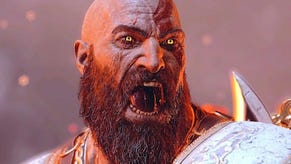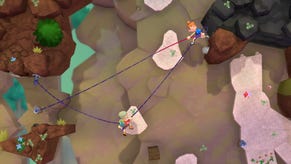Looking forward: on representation and character creation
Is 2022 the year gaming really does become for everyone?
Hello! We're going to start the year off with a handful of pieces looking forward to 2022. Sometimes we'll be looking at trends we've spotted or themes that will probably be continuing to define things in games for a while. Sometimes we'll just be thinking about things we've enjoyed and where they could lead. Have a lovely new year all!
Gaming is, and should be, for everyone. But that's not always been reflected in the characters we get to play as, be they created by developers or for ourselves.
Slowly, though, change is coming. 2021 not only saw a diverse range of characters in games, we saw authentic, normalised portrayals beyond a box-ticking exercise.
Yes, plenty of games added rainbow badges, especially for Pride Month. But the likes of Unpacking, Life is Strange: True Colors, Boyfriend Dungeon and Unsighted brought LGBT+ narratives to the fore in sometimes subtle ways. Battlefield 2042, Rainbow Six Siege, and Apex Legends added queer characters to online shooters. Heck, even Guardians of the Galaxy could be interpreted a certain way, even if Star-Lord isn't openly bisexual like he is in the comics. After all, it's about a group of misfits in a found family fighting religious zealots converting the galaxy.
With Deathloop, a game of the year contender for many, we had a rare example of two authentically created Black protagonists with Colt and Julianna. The latter was one of many examples of well written, determined women in games, from Returnal's Selene, to Lady Dimitrescu and Ratchet & Clank: Rift Apart's Rivet, who also offers an example of disabled representation.
There's more of this to come this year, from AAA titles to indies. 2022 sees the return of Aloy and Bayonetta, two immensely popular leading ladies. Yet more interesting is the promise of women's teams coming to Football Manager, bringing greater representation to a typically male-dominated space.
Redfall and Forspoken both include Black female leads (though the latter appears to have some worrying stereotypes), while Thirsty Suitors and Venba feature South Asian representation. And there's the hotly anticipated God of War: Ragnarok that includes a Black Angrboda and a plus-sized Thor.
In the queer space, Behaviour has promised to include their first ever LGBT+ character in Dead by Daylight - a game that's already proven hugely popular with the community.
Of course, this is by no means an exhaustive list of what we've seen and what's to come. It's a mere snapshot of how representation really is improving in gaming, even if there's always room for growth.
Better still, where all this representation converges is in character creators. Beyond the set characters of developers' imaginations, games allow us to create ourselves. And increasingly, character creators are becoming less and less restrictive. Rejoice!
In 2021 Monster Hunter Rise added authentic Black hairstyles, something Animal Crossing: New Horizons did in late 2020. More and more games included pronoun options, including Forza Horizon 5. Excitingly, that game also allowed for prosthetic limbs to represent the disabled community.
That's all set to continue in some of the biggest releases of 2022. Bethesda has confirmed Starfield, unlike Fallout or The Elder Scrolls, will include pronoun options, while Maxis will finally add pronoun options to The Sims 4 - a much requested feature. OlliOlliWorld will allow skaters to be whoever they want to be. Hogwarts Legacy will allow for trans witches and wizards, in a move that sets the devs apart from the author. Even Nintendo is removing the gender binary from Splatoon 3 and will instead allow players to choose a 'style' for their squid or octopus kid.
Restrictions are lifting, then, which means games are getting ever closer to that dream of reflecting everyone through diverse characters and inclusive creators. As Halo announcer Jeff Steitzer said last year in an interview with Gaming Bible when asked about developers supporting marginalised people: "don't be such p*ssies".










